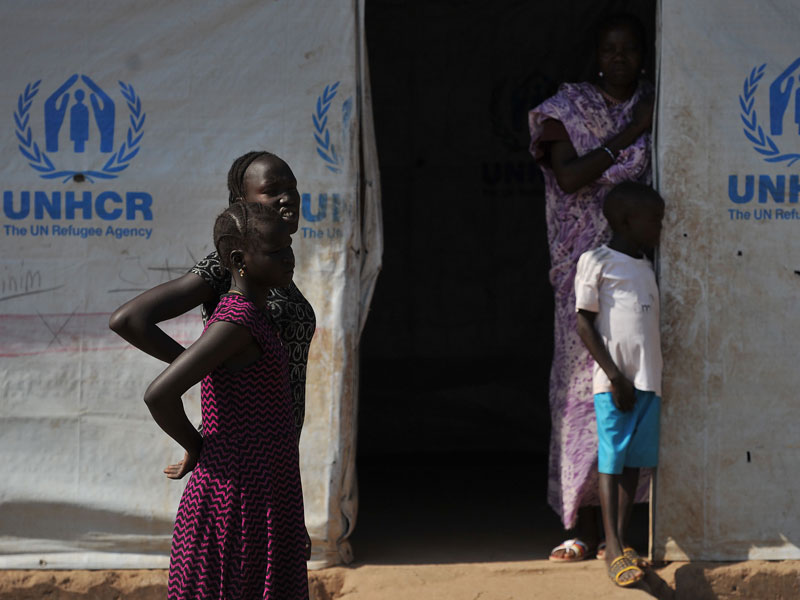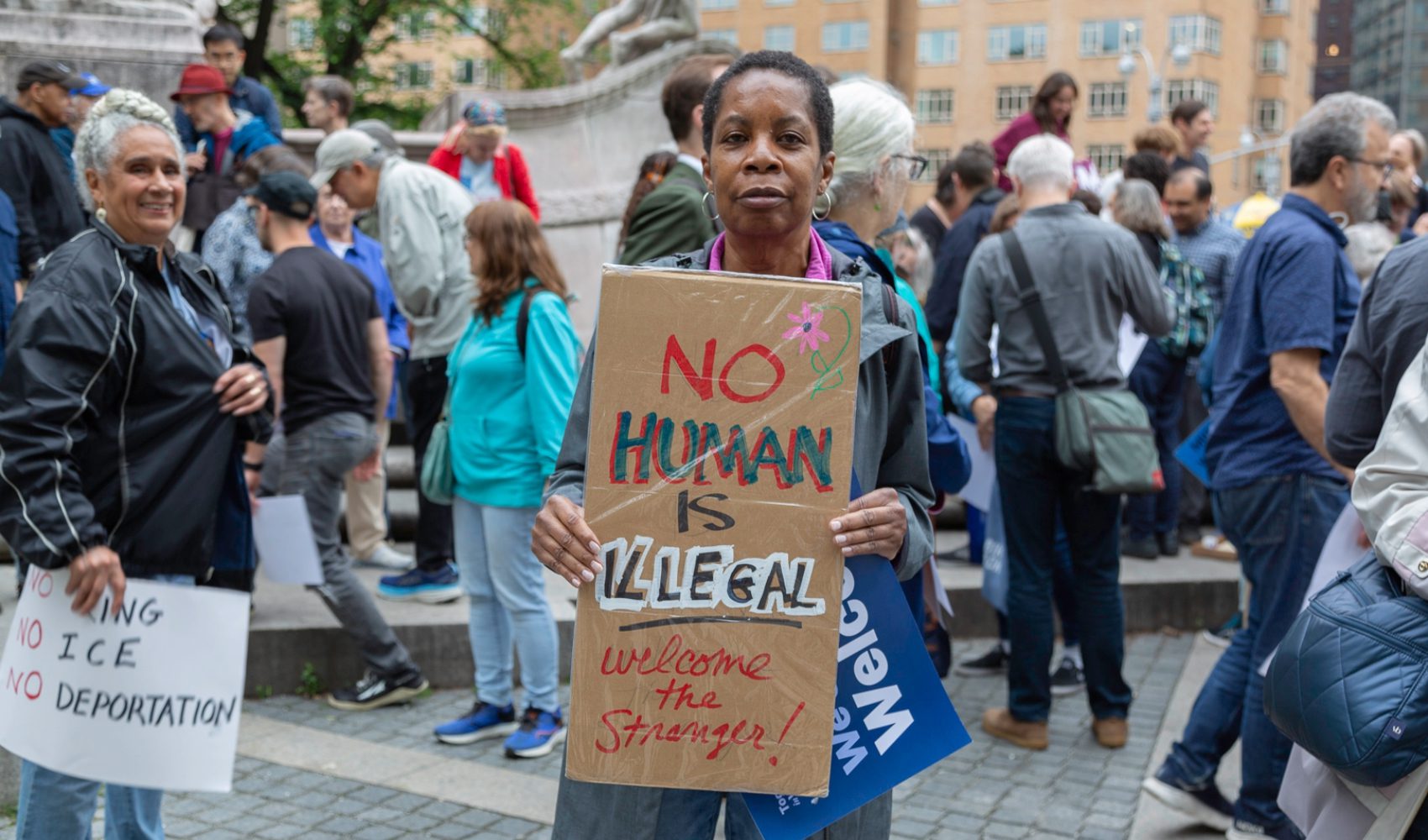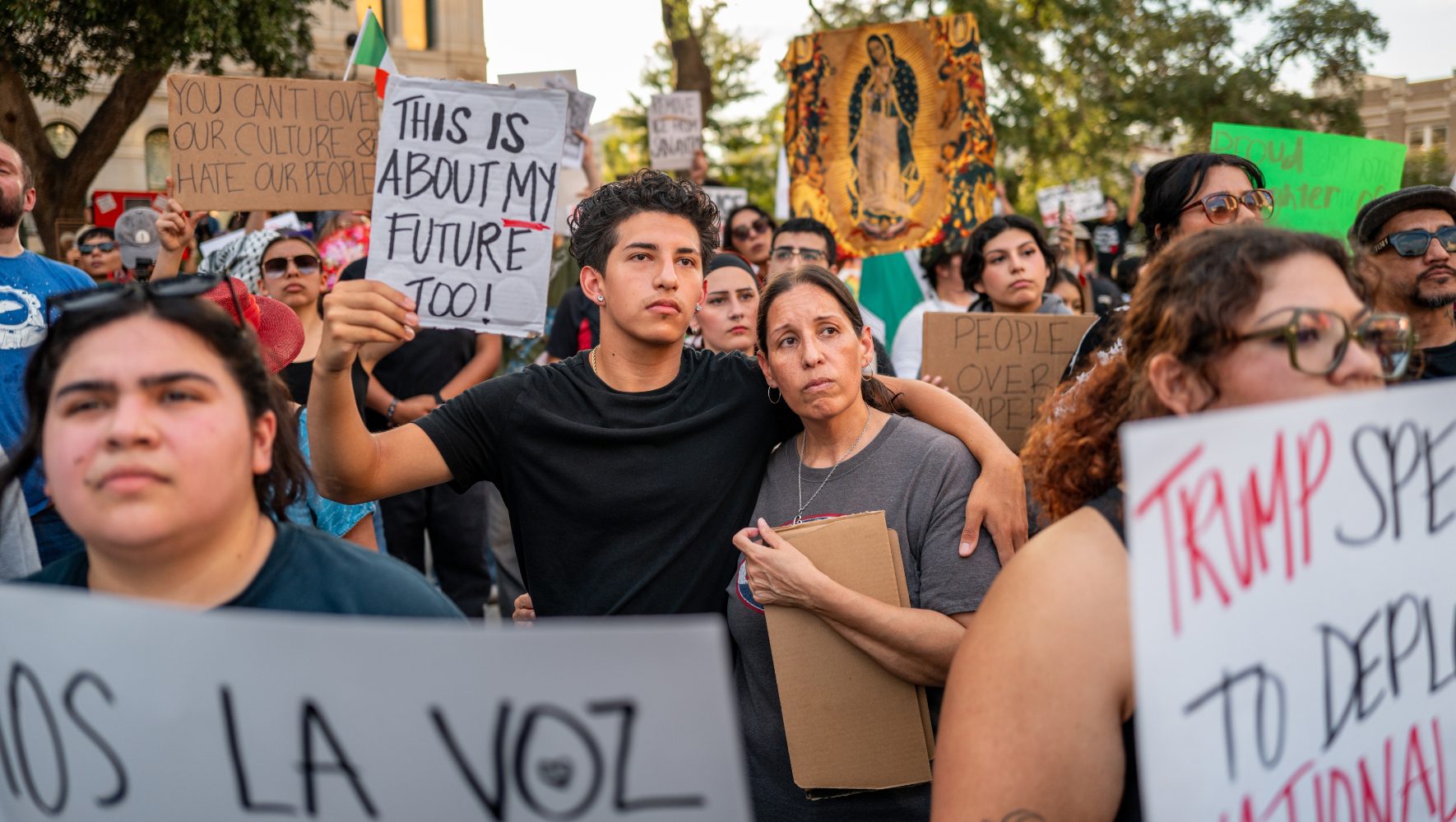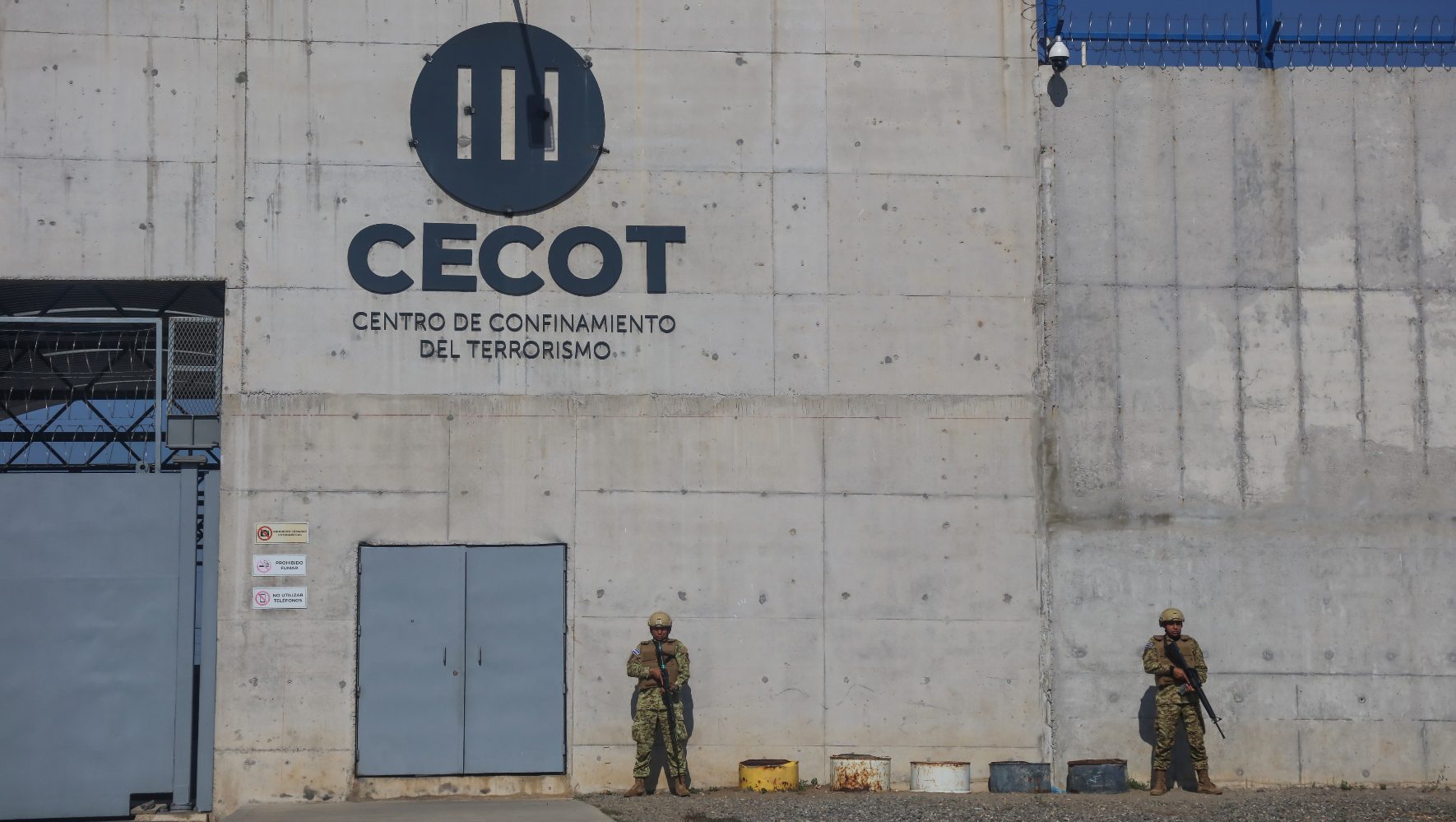UN Approves Global Compact on Refugees
Dec 18, 2018

Young South Sudanese women look on during a visit by United Nations High Commissioner for Refugees (UNHCR) and head of the United Nations Office for the Coordination of Humanitarian Affairs (UNOCHA) on February 1, 2018 to recently arrived refugees at Kakuma refugee complex.
(TONY KARUMBA/AFP/Getty Images)
This week in Geneva, the Global Compact on Refugees was endorsed with overwhelming support by members of the United Nations General Assembly.
The compact is the first such agreement that acknowledges the necessity of working cooperatively to protect the rights of refugees. Its aim is to provide greater international support for those forced to flee their homelands, and for the host countries that take them in, which are often among the poorest in the world. HIAS is fully supportive of the new agreement and has been involved in the work behind the compact for the past two years, participating in informal NGO consultations with UNHCR and providing feedback on different drafts of the agreement through a coalition focused on this issue.
The United States and Hungary were the only countries that did not support the compact and voted against the resolution that included the agreement. The vote was not unexpected, as the U.S. has been vocal in its opposition of any international agreements that it perceives to be in conflict with U.S. sovereignty. Ambassador Kelley Currie, U.S. Representative for Economic and Social Affairs, U.S. Mission to the United Nations, voiced opposition to the compact on behalf of the U.S. government last month. Despite the government’s decision to oppose the compact, HIAS remains hopeful that the U.S. will utilize its global leadership role to work collaboratively with other countries to turn the commitments included in the compact into actions that will help reduce the suffering of millions of refugees.
InterAction, the largest alliance of U.S.-based international NGOs and partners, of which HIAS is a member, said in a statement: “The GCR’s overarching objective to better support refugees by promoting more equitable responsibility-sharing aligns with the United States’ sovereign interests.” The group also noted that as the largest financial contributor to humanitarian assistance globally, the United States’ continued support for the compact “sends a strong message to refugee-hosting countries at a time when the gap between humanitarian need and funding has widened.”
The need for a global plan for refugees is immediate. According to the United Nations High Commissioner for Refugees (UNHCR), just 10 countries host 60 percent of the world’s 25.4 million refugees with Turkey hosting 3.5 million refugees, more than any other country. The vast majority of the world’s refugees–85 percent–live in developing countries that have their own economic and development challenges.
The road to this week’s vote began in September of 2016 when the UN Summit for Refugees and Migrants was convened, the first high-level gathering in history to address large movements of refugees and migrants. The outcome was the adoption of The New York Declaration for Refugees and Migrants, a global commitment to improve the human rights and protections of refugees and migrants. The declaration, supported by all 193 UN Member States, was praised and supported by the United States. The Declaration underlined the importance of recognizing the differences between refugees and migrants and addressing the refugee and migration crises distinctly, and so included in the declaration was the agreement to work toward the 2018 adoption of two compacts.
The Global Compact on Refugees has the goal of strengthening the international response and increased responsibility sharing of refugees in newly emerging and protracted refugee crises. The Global Compact for Safe, Orderly and Regular Migration is intended to improve coordinated responses among Member States, and to develop a framework for international cooperation, on migration. Earlier this month, the Global Migration Compact was adopted by 164 nations, without support from the U.S.


